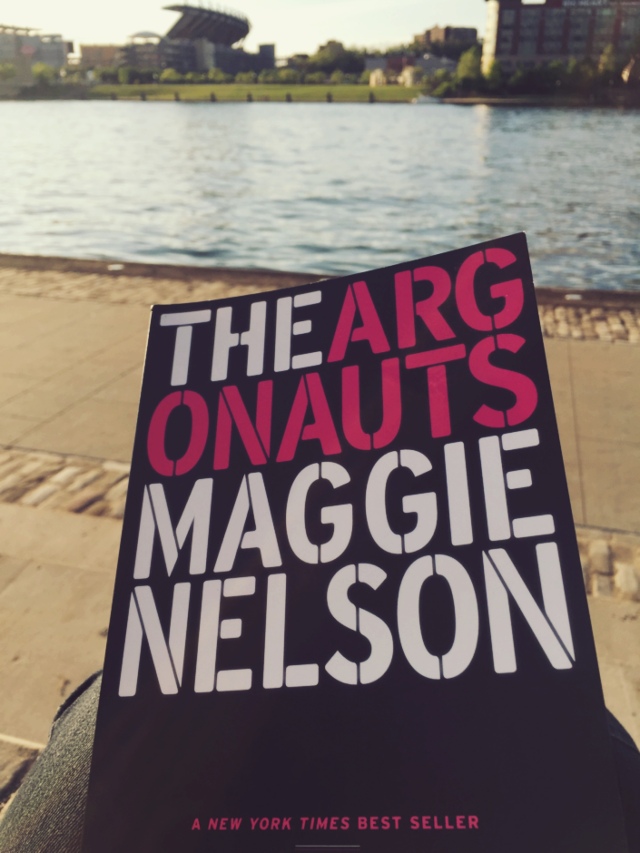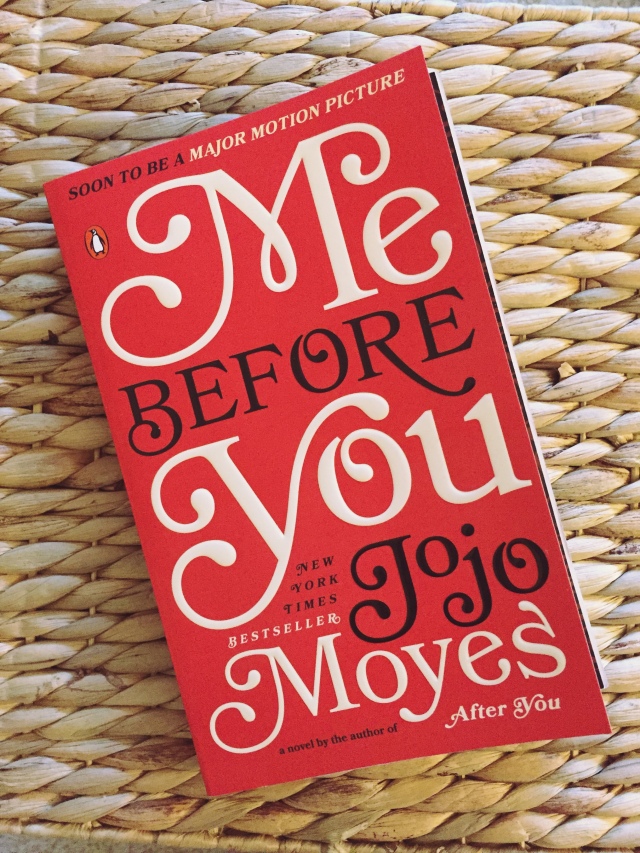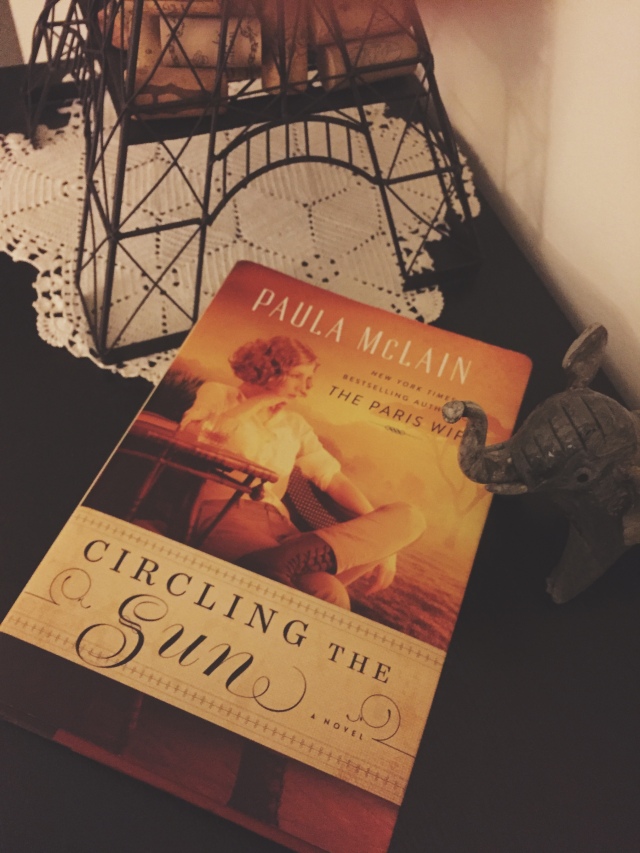
The Argonauts was the May book choice for Our Shared Shelf. I was very excited to read it because it was so different from my normal reading material. If I had to describe what kind of book The Argonauts is, I would say that it’s a memoir blended in with essays on love, gender studies, and family (among many other topics!). It’s Maggie Nelson’s very personal account of her relationship with her fluidly gendered partner, and the experience of going through a pregnancy.
I struggled a lot with reading this book. I think it was a combination of the format and some of the subject material. The book is not divided into chapters, or any sections really. To me it reads like a stream of consciousness, with Nelson’s thoughts and insights and memories blending with references to theorists and scholars. Because there was no break throughout the book, I found myself becoming completely absorbed in her writing because it was very intense and powerful. But after 10 pages or so I would have to stop because it was so much information to take in, and I just needed a break. Also, I had to look up many of the references that she made, which made it a little more difficult and ultimately slowed my process. Overall, I think the book is very intellectually written, and I’m just not as familiar with some of the topics and references, and needed to get myself up to speed.
I think the thing that completely amazed me was how frank and honest Nelson was about such personal details of her and her family’s life. She held nothing back in writing this, she was herself openly and completely, regardless of opinions that others might have. I thought it was a beautiful piece of writing in that regard. That level of honesty is so rare, I felt very connected to what she was saying, and the experience kind of blew me away.
The Argonauts also expanded my awareness and understanding of gender fluidity. I haven’t had any experience with gender fluidity in my life, meaning that I don’t personally know anyone that would identify in that way. To be completely honest, I found it incredibly difficult to wrap my head around. I think the concept of “male” and “female” is so ingrained in my mind that I felt like I had to unlearn something, though I’m not exactly sure what it is that I unlearned. I just found myself questioning things a lot. For example, I was confused on what pronoun to use to describe Harry (Nelson’s partner), and eventually I reached a point where I was asking myself why I had to choose, and why couldn’t I just accept Harry as Harry and leave it be? This probably isn’t a good analogy because it’s so basic, but I remember telling people in high school that “I don’t believe in labels.” At the time I was referring to the loose classifications of preps, jocks, geeks, etc. I would tell people that I didn’t believe in labels because I felt like I belonged to more than one group. Is it such a stretch to apply the same logic to gender, even though the logic is so incredibly basic? I don’t know the answers to these questions, or even if there are answers. I’m just enjoying being challenged by the reading material. This is the first book in Our Shared Shelf that I felt motivated to participate in a discussion board, so it’s clear that the book is making me think. And however confusing or challenging that is, I like it.
Maggie Nelson also spent a significant portion of the book discussing motherhood, and how being a mother relates to and impacts being a woman. I thought these parts of the book were very interesting and eye-opening because it made me think about motherhood in a new light. I’m not a mom, and I have no plans to become one anytime soon, so a lot of the theories that Nelson discussed were basically unknown to me because motherhood just isn’t on my radar right now. It made me think a lot about my own mom, and some of my friends that have recently had children, and I wonder what they would think if they read this book. In that regard, I think they would have gotten more out of the reading experience than I did. I already want to re-read The Argonauts at some point, just because it is so much to digest, but I want to make a mental note to myself to pull this out if and when I ever have children. I wonder what I would think about it then.
Reading The Argonauts was definitely an experience. It was a struggle- both in the structure of the book and the subject material. Even though it’s only about 140 pages long, I was challenged enough that it took me over a week to read. But I’m not complaining about it. It was such an eye-opening book; it was just a really good learning experience. In a weird way, I’m kind of proud of myself for completing it. If it weren’t for Our Shared Shelf, I would’ve never felt compelled to read The Argonauts. It’s something I would’ve passed over in a bookstore without a second glance. So the fact that I went outside my reading “comfort zone” and that I finished it despite the struggle… it’s just a good feeling. It serves as a reminder to me that you can always learn by reading.


